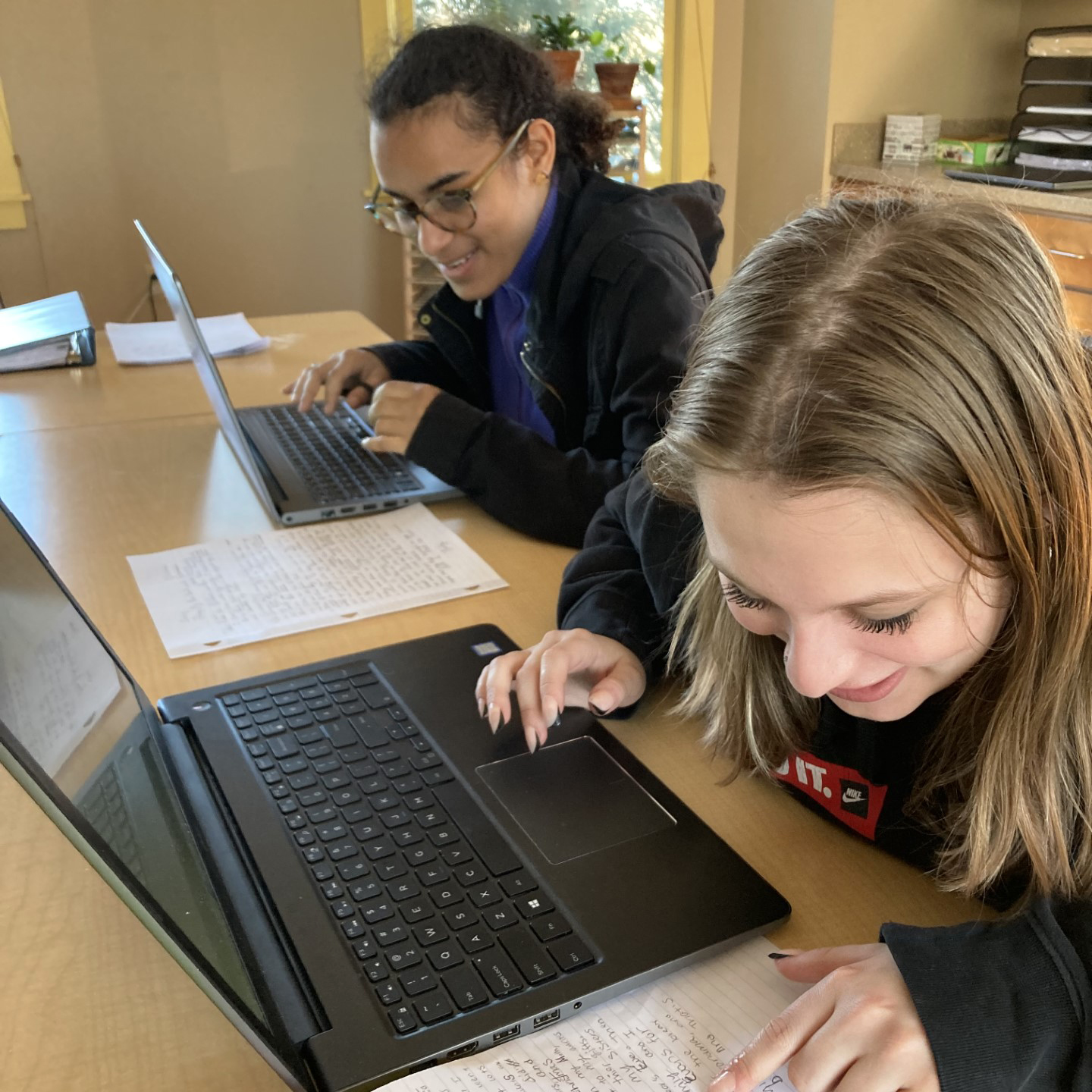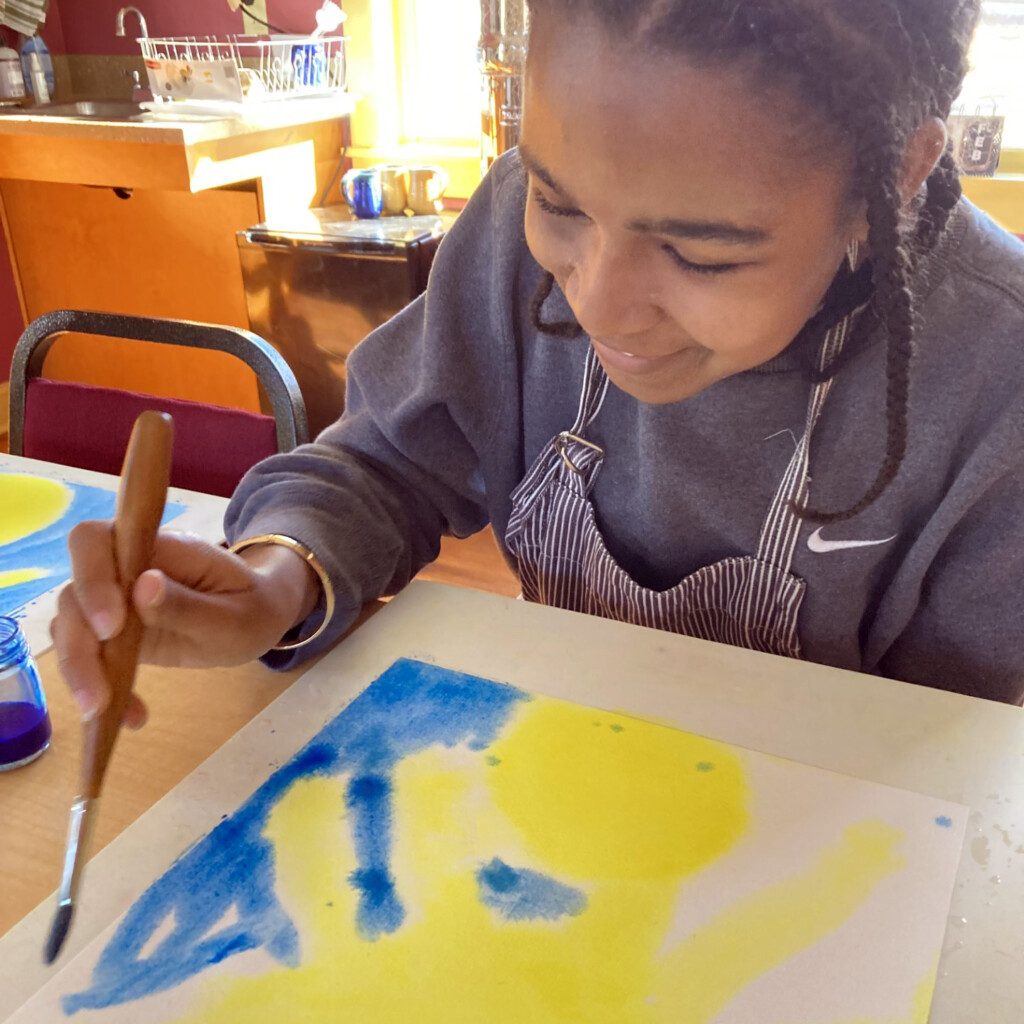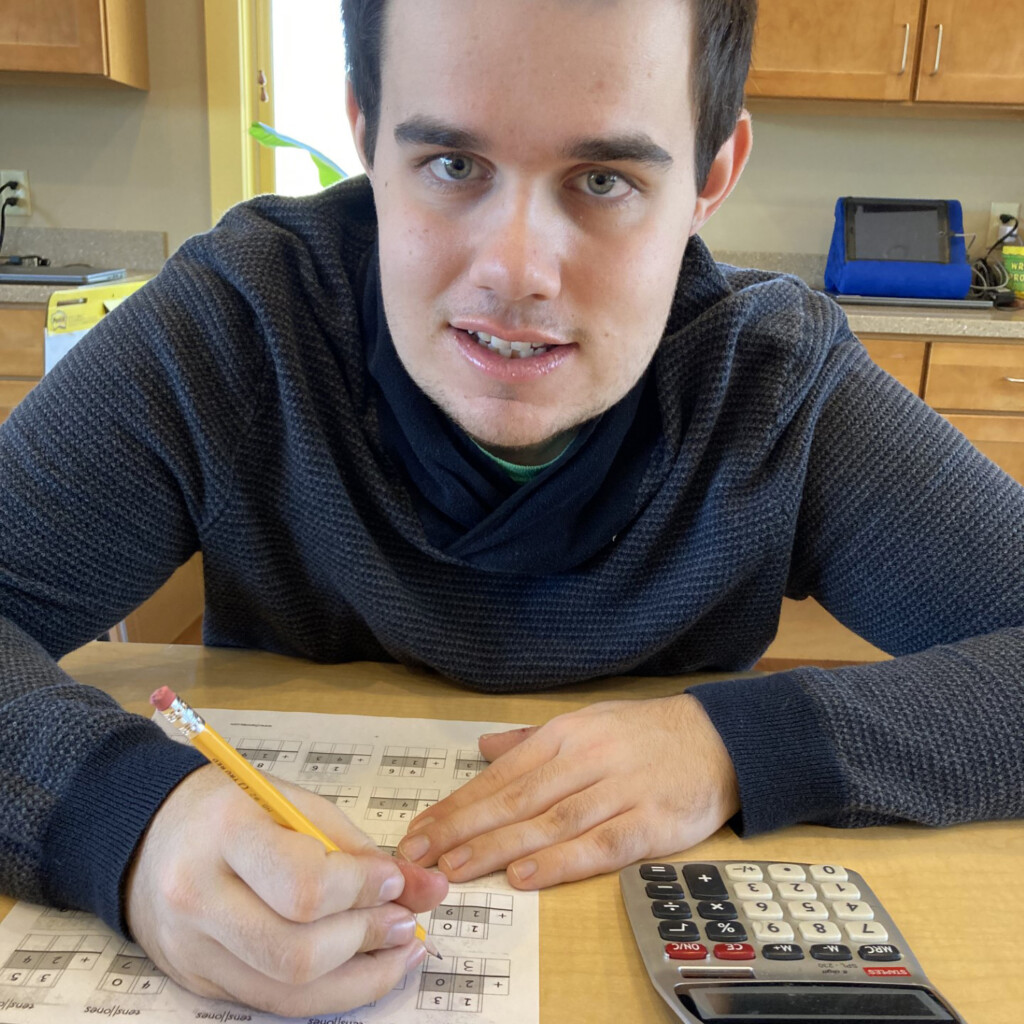What do I want to learn today? The classroom at the Transition Program

There is so much work going on at the Transition Program! Everyone is active, engaged, and
busy: tending the livestock; growing crops, herbs, vegetables, and flowers; or working in the
kitchen turning the produce from the farm and the garden into delicious nutritional meals for
all to eat; or working in the workshops transforming the raw materials produced on the land
(the plants, flowers, wood, and wool) into pieces of art and beauty. There’s also a Childcare
group, which is new this year.
A group of students might be working in the greenhouse watering the plants or cutting some
salad for lunch, another group might be feeding the pigs or collecting the eggs, whilst others
are chopping vegetables in the kitchen, or setting the tables in the dining room, or weaving a
tablecloth in the weavery, or cutting back brambles and stacking logs with the estate crew. As well as each individual student learning important vocational and social skills, everyone
is contributing to the work, well-being, and life of the community as a whole.
In amongst all of this industry, there are also moments of stillness: a hush before blessing the
meal, a few moments of silence after eating, a quiet walk in Nature, or a moment to be peaceful at snack time, or at rest time after lunch.
The classroom in the Ed. Center is also a place of stillness. Muddy boots and jackets, hats and gloves are shed, hands are washed, fresh water is drunk, and the world of work and labor and responsibility is forgotten for a moment. We sit up and we breathe out. Books are opened,
pencils are sharpened, the limbs come to stillness, the head takes over and now each student is only responsible for themselves: what do I want to learn today?
We look at the clock and we check the time; we look at our calendar and we check the date; we look outside and we check the weather; and then we look inside and we check ourselves: how do I feel today?
Many of the students enrolled at the Transition Program spend some time each week working
in the classroom. Some work on writing their name, address, age, and birth date; others are
working on computer skills, or calculating skills, or learning to tell the time. Some students
might be filling out demographic forms, or writing lists of job interests and job experiences.
Whilst others might be working on their interview skills.
There are also students who want to journal, or paint, write poetry or songs, or emails to their
parents, or they want to read inspiring stories and biographies. Others might be given writing
prompts or exercises that help them to answer the questions: Who am I? What am I here to do
on this earth? Many students need guidance and help to make their life goals realistic and
attainable.
For others, it is still OK to dream for a while…


